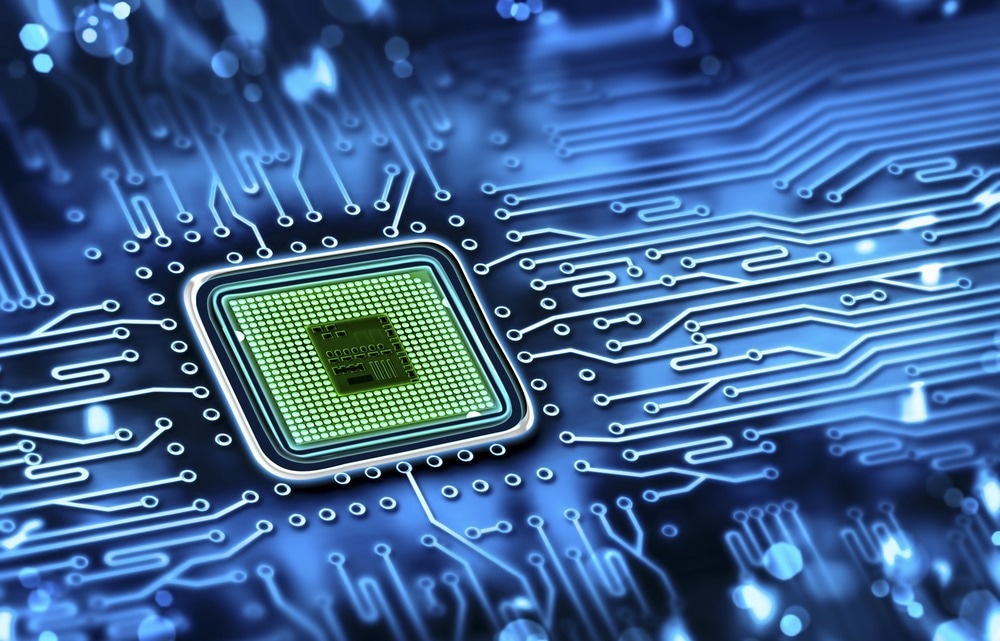Although the majority of computing worldwide remains digital, the data encountered is often captured in analog format through sensors, such as images from cameras, temperature readings, and sound signals. These analog inputs require conversion into digital form to ensure precision and compatibility with digital systems.

Image Credit: Robert Lucian Crusitu/Shutterstock.com
Consider an autonomous vehicle navigating the road, requiring rapid data capture and instantaneous decision-making. In such scenarios, data conversion becomes crucial, necessitating quick, energy-efficient, and precise processes. What if newly engineered analog chips could offer the precision of digital computing while harnessing the energy-saving and high-speed benefits of analog computing?
A memristor is a relatively small component capable of efficiently storing and processing data in a computer chip comprising various circuits. In a previous study conducted by the lab of Professor J. Joshua Yang from USC Viterbi School of Engineering's Electrical and Computer Engineering department, researchers successfully fine-tuned a memristor, achieving unparalleled precision.
Now, Yang's lab at USC Viterbi, in collaboration with the School of Advanced Computing, has developed a novel circuit and architecture to further enhance precision using the same memristors. This advancement holds the potential to significantly expand the applications of such technology beyond traditional low-precision domains, such as neural networks.
Yang further notes that this innovation extends to other memory technologies, including magnetic memories employing the same device as read-heads in magnetic hard disk drives, and phase change memories utilizing the same material found in compact discs (CDs).
According to Yang, it is typically very difficult to quickly and precisely program an analog device to a target value. To do just that, Yang’s lab created an algorithm and corresponding circuit architecture. This invention greatly increases the appeal of analog computing with analog devices for a wide range of applications.
It has, higher efficiency and higher speed with accuracy of the digital systems.
J. Joshua Yang, Professor, Department of Electrical and Computer Engineering, USC Viterbi School of Engineering
According to Yang, this kind of advancement is crucial because, up until now, digital systems have been the only affordable means of training neural networks - which are essential for the development of artificial intelligence (AI) and machine learning (ML). Beyond AI and ML, the innovation will also open up new applications, like scientific computing for weather forecasting.
The study was published in the journal Science. The authors of the study were Wenhao Song, Ye Zhuo, Peter A. Beerel, Mike Shuo-Wei Chen at USC, along with Qiangfei Xia at the University of Massachusetts, Mark Barnell and Qing Wu at Air Force Research Lab, Information Directorate, Rome, NY, USA. The research was conducted with Miao Hu, Gleen Ge, and other engineers of TetraMem Inc., a startup co-founded by Yang.
The previous paper upon which this research builds, conducted within Professor J. Joshua Yang's lab, was featured in Nature.
Journal Reference:
Song, W., et al. (2024) Programming memristor arrays with arbitrarily high precision for analog computing. Science. doi.org/10.1126/science.adi9405.